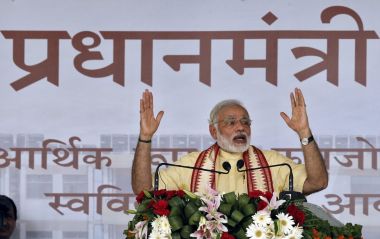Christian held as domestic slave by Hindu employers wins payout for religious discrimination

A Christian woman forced to work for her Hindu employers for as little as 11 pence an hour has received nearly £184,000 in compensation for caste discrimination.
Permila Tirkey, from Bihar – one of the poorest states in India – is a member of the Adivasi or tribal people, who are often very poor and marginalised and have little education. Her employers Ajay and Pooja Chandok recruited her to work in the UK and forced her to work 18 hours a day, seven days a week. She was banned from bringing her Bible to Britain, had to sleep on a mattress on the floor and was not allowed to contact her family.
She was kept in these conditions for four and a half years.
The employment tribunal ruled that she was a victim of unlawful harassment and indirect religious discrimination. The award figure represented the shortfall from the national minimum wage.
The tribunal said the Chandoks "wanted someone who would be not merely of service, but servile; who would not be aware of United Kingdom employment rights and whom they could treat in the United Kingdom as [Mrs Chandok's] father treated his servants in India".
Her case is one of the first to cite caste discrimination. Responding to the judgment, she said: "I want the public to know what happened to me as it must not happen to anyone else. The stress and anxiety that this sort of thing creates for a person can destroy them. I have not been able to smile because my life had been destroyed. Now I am able to smile again. Now I am free."
Tirkey's barrister, Chris Milsom, said: "Permila Tirkey is a remarkable woman and deserves enormous credit for her patience and stoicism at a time when she was brandished dishonest by those who held her in servitude for four long years.
"Those who have closely followed the legislative history of the Equality Act will recall that the government's original rationale for refusing explicit prohibition of caste-based discrimination was that there was no evidence of it taking place in the UK.
"The damning findings of the employment tribunal render that stance untenable. Where such discrimination exists its victims must be protected."
Her solicitor Victoria Marks, from the Anti Trafficking and Labour Exploitation Unit, said: "This is a very useful judgment for victims of modern day slavery. We hope that it will give other victims the courage to come forward and seek redress.
"It is important that traffickers do not act with impunity and that they see that their victims can and will hold them to account."











